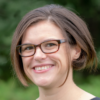In the steady heat of a summer night in Siem Reap, we crowded around a table at a local restaurant, Sambo. We were sharing our first group dinner in the city. Exhausted from a full day of activities, food was guaranteed to keep everyone engaged, especially when the courses were this delicious. As we filled our bellies with fresh mango smoothies, spicy beef lok lak, and creamy fish amok, we couldn’t help but remain in awe that this was coursework.
Comprised of four cities, fifteen students, two professors, one TA, and two writing courses, CSSH’s “Food and Culture in Vietnam and Cambodia” 2023 Dialogue of Civilizations (DOC) took us from the busy nightlife of Hanoi to the calm seas of Kep as we traveled and tasted our way through Southeast Asia.
The DOC students were a mixed bag of different majors and years. Some were there to further their writing skills, others for the chance to see a new part of the world. Our interdisciplinary hub was brought together to explore new ideas and garner worldly experiences. Regardless of intention, we all gained a greater cross-cultural understanding through our fieldwork–eating, cooking, researching, and writing.
[Greenhouse space for a cooking class at Mahob Khmer in Siem Reap.]
Origins
[Two cups of Vietnamese coffee sitting on the perch of the C.O.C. Legacy Coffee cafe.]
When Professors Caitlin Thornbrugh and Kat Gonso first joined forces to conceptualize a new English DOC, they pulled from personal experiences.
Professor Thornbrugh worked abroad in Cambodia as part of the Princeton Asia Fellowship for post-grads. Housed at the Royal University of Phnom Penh, she grew to love the city’s vibrant life and working with Khmer people. One of the reasons she values bringing Northeastern students to Cambodia is because it is often the first time they are able to write, research, and reflect on Cambodia’s history and the U.S. involvement in the region.
Professor Gonso’s undergraduate years were filled with experiential learning activities similar to CSSH’s offerings. A study abroad program in Europe taught her the importance of travel, as exposure to new cultures expands and complicates our understanding of the world. As an educator, she wishes to share those discoveries with her students.
Eager to bring their vision to life, Professors Gonso and Thornbrugh traveled to Hanoi and Phnom Penh as Global Experience Office (GEO) faculty fellows in 2019. The two spent ten days developing plans for what would eventually become the “Food and Culture” Dialogue.
“Food teaches us about ourselves and the world around us. Writing about food is writing about the self, the body, human invention, and history,” said Professor Thornbrugh, reflecting on her intentions for the course. “It’s interdisciplinary, immersive, interactive,” added Professor Gonso.
The 2020 launch trip was canceled due to the COVID-19 pandemic. However, Professor Thornbrugh was able to host the first group of students in 2022, though the cohort only traveled in Cambodia. When the 2023 trip put Vietnam back on the table, Professors Gonso and Thornbrugh were thrilled to show students Hanoi and discuss the histories and cultures of both countries.
[Dishes at Bún chả Hương Liên, where President Obama and Anthony Bourdain once dined.]
Building a Program
When considering applicants for the dialogue, Professors Gonso and Thornbrugh look for students who exhibit flexibility and resiliency. As a student in the 2023 cohort, I found that there was an intimidating amount of choices to be made, from finding and researching where to eat, calculating currency differences, and navigating language barriers. The trip can be physically demanding, with exhaustive summer heat, persistent bug bites, and the potential for stomach issues. It is also intellectually challenging, inviting students to consider complicated topics like photography ethics, food systems, the U.S.’s role in the Khmer Rouge genocide, and more.
[Community garden at the Tonle Sap Lake Village.]
Local Collaboration
Strong relationships with Khmer and Vietnamese locals are critical to the dialogue’s success. For each country and city, local guides helped lead us on excursions. Guest speakers, such as Khmer writer, researcher, and communications specialist Darathey Din, provided an additional layer of insight into life in different countries. In Prek Toal, a floating village on the Tonle Sap Lake, we collaborated with the nonprofit Osmos and were given a tour by local guides. While local chefs prepared a meal for us sourced from the lake and farms, we learned about Osmos’s efforts to implement new modes of use and sustainable development in the region.
Impact
[A purple and pink sunrise over the shadowed temple of Angkor Wat.]
Even with its varied challenges, my fellow 2023 dialogue participants and I look fondly back at the trip. For students like Esha Parikh (Business Administration and Data Science, BS ‘26), visiting sites like Angkor Wat had a profound cultural and spiritual significance. “It was like reliving my childhood but seeing it all come to life,” said Parikh, who grew up learning different Hindu stories from her father and classical Indian dance teacher. “It felt as if the ground beneath me was being churned and I was reliving Indian history. It is amazing to see how a religion differs across countries.”
Augustine Nguyen (Electrical and Computer Engineering, BS ‘26) says the trip marked the “best” time of his life. “Over the course of those 30 or so days, I tried some of the best food, saw some of the most beautiful and amazing places, and met some of the nicest people,” said Nguyen. “As a Vietnamese American, the dialogue offered me a means of getting more in touch with my culture and heritage.” And when it came to the food, there was no shortage of deliciousness to be found. “I had the best bún bò (a Vietnamese beef soup) that I have ever had in my entire life from some random street stall,” Nguyen added.
Professors Gonso and Thornbrugh remain impressed by how dedicated students were to coursework, admiring the level of seriousness put into their final interdisciplinary research projects on topics like propaganda and post-war recovery. Social issues had immediate resonance because of how they were seen on a day-to-day basis. Students didn’t shy away from immersing themselves in unfamiliar environments to better understand different parts of the world. As a collaboration between faculty, students, and community members, this Dialogue of Civilizations is a success.
The manageable humidity of Boston may be preferred to Southeast Asia’s, but I often miss those rainy summer nights abroad. My meals with fellow DOC travelers are now some of my most joyous memories. The unique flavors of Vietnamese and Khmer cuisine are close to my heart. Nothing compares to the sweet/sour contrast of a ripe mangosteen or the custardy center of durians. They are tastes that ring truest when close to the source.
This dialogue will not be running in Summer 2024. Applications for Summer 2025 will open in Fall 2024. For more information on the 2023 excursion, visit roaming_writers on Instagram.






